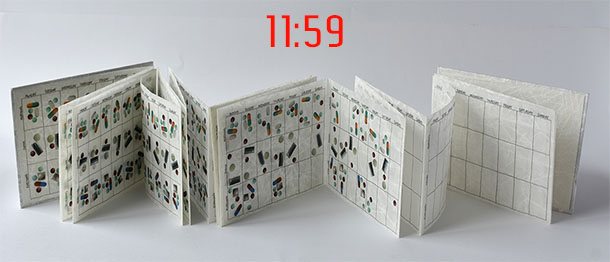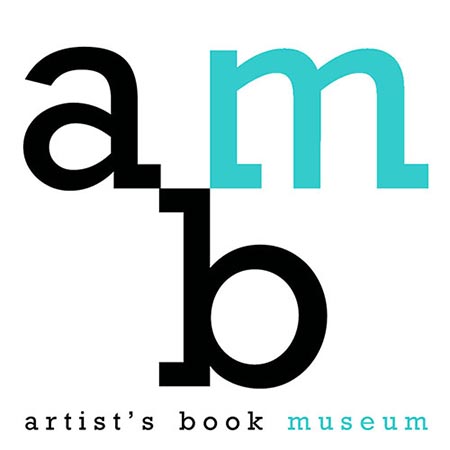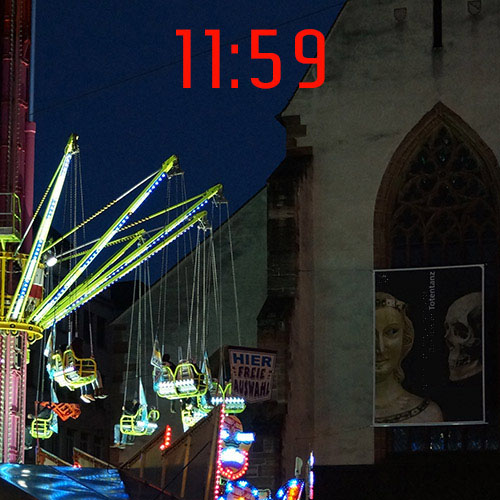Artist’s Book Triennial: ‘Memento Mori’
The Topic of the 8th Artist’s Book Triennial – ‘Memento Mori’
8th International Artist’s Book Triennial Vilnius 2018
The topic of the ‘8th Artist’s Book Triennial Vilnius 2018’ – ‘Memento Mori’ – was supposed to stimulate reflection upon life, not about the upcoming death that is inevitable in the material sphere. It’s about an immortal human, to whom earthly ‘sleep’ is only an open door to eternity, to eternal life in Bliss. To whom a tough or violent death, or a most horrid act of terror may become a road of martyrdom and sainthood leading to Heaven. But how numerous are those ‘already dead’ by their own will, even though they yet walk among the living. What is it that still frightens them? Being the children of death, why do they continue to scream and weep, squeal and try to escape its creeping embrace? What are they running from? Is it the non-existence, for they only recognize this brief period of life as existence? But what is so terrifying about the non-existence if there is no eternal bliss or suffering within (or beyond) it. After all, everyone is going to get ‘that which they believed in’. So, is there a sense in the efforts to escape death, considering its temporality and humble chances to prolong one’s existence by no more than several days in the natural condition of move towards non-existence since the very birth moment? Thus, let us not become the dead, marching towards their dusky grave. Let us rather become the children of light, awaiting the eternal Bliss.
Kestutis Vasiliunas
Curator of the Triennial
8-oji Vilniaus tarptautinė dailininko knygos trienalė 2018
Trienalės tema: „Memento Mori“
Šių metų parodos tema – „Memento Mori“ – turėjo paskatinti menininkus susimąstyti ne apie artėjančią mirtį, kuri medžiaginėje plotmėje yra neišvengiama, bet apie Gyvenimą. Apie žmogų, kuris yra nemirtingas, kuriam žemiškas „miegas“ yra tiktai atvertos durys į amžinybę, į amžiną gyvenimą Džiaugsme. Kuriam net sunki mirtis ar prievartinė žūtis, baisiausias teroro aktas gali tapti kankinystės ir šventumo keliu į dangų. Tačiau kiek daug yra tokių, kurie „jau dabar yra mirę“ savo noru, nors ir vaikšto tarp mūsų lyg gyvieji. Tai ko jie dar vis bijo? Ko jie klykia ir verkia, bėga ir skundžiasi dėl aplink juos šmėžuojančios mirties, jeigu jie patys yra mirties vaikai? Nuo ko jie bėga? Nuo nebūties, nes tik šis trumpalaikis gyvenimas jiems yra būtis? O kas gi tokio gąsdinančio nebūtyje, jeigu joje (už jos?) nėra Amžinybės su palaima arba amžina kančia? Juk kiekvienas „gaus tai, kuo tikėjo“. Ar turi prasmę tas bėgimas nuo mirties, jeigu jis laikinai ir įmanomas, prailginant savo egzistenciją viena kita diena, jeigu vis tiek judi į nebūtį nuo pat gimimo akimirkos? Tad nebūkime mirusieji, einantys į tamsų kapą. Būkime šviesos vaikai, laukiantys amžinojo Džiaugsmo.
Kęstutis Vasiliūnas
kuratorius





